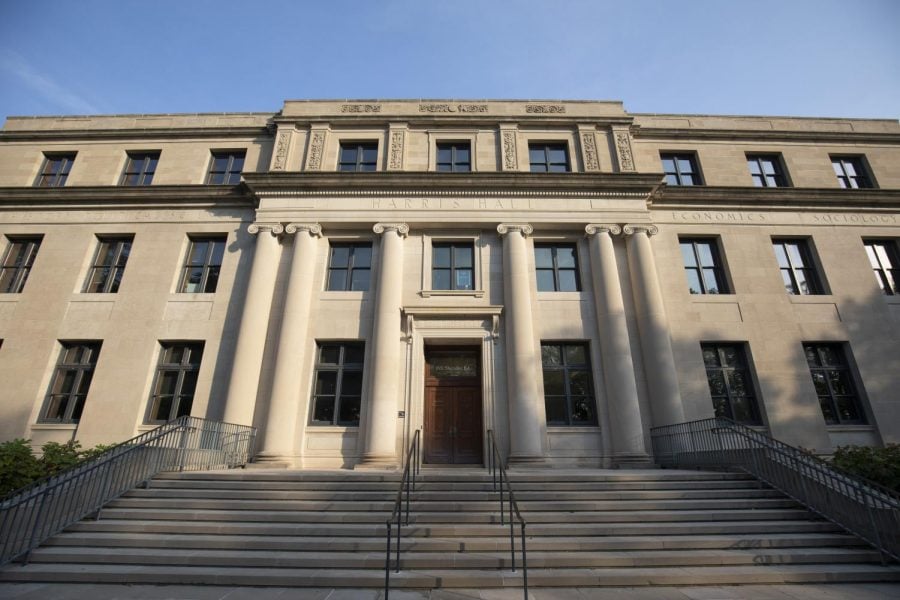Alice Kaplan Institute hosts a conversation on how to cope in the academic world
Daily file photo by Joshua Hoffman
The Alice Kaplan Institute for the Humanities hosted a talk about the stresses of the academic world.
October 25, 2022
The Alice Kaplan Institute for the Humanities hosted its fall keynote, “Academic Energies: A Conversation Beyond Coping,” on Tuesday.
The conversation, part of its 2022-23 yearlong dialogue “ENERGIES,” was led by African American studies and Asian American studies Prof. Nitasha Sharma and Penn State Prof. Tina Chen. The discussion focused on moving through and beyond academic cynicism and exhaustion in the face of external circumstances.
“The energy dilemma shapes our lives, from everyday to local scales,” interim Kaplan Institute Director Kelly Wisecup said. “The pandemic has highlighted an increased demand for our energies … and the accelerating climate crisis demands different approaches to our energies.”
Chen said coping is about “surviving” at the subsistence level, but academics must go beyond coping to “flourishing” in order to succeed.
“I try to navigate my professional decisions and career about what flourishing would entail, and for me, flourishing involves trying to think about new ways to do work,” Chen said.
Chen was diagnosed with advanced-stage breast cancer in 2011. After her diagnosis, she said she had to reevaluate her career and its trajectory.
One result of Chen’s reevaluation was the realization that she did not want to follow the traditional career path of a professor in her position, she said.
“It created a different set of possibilities, because it was very clear when I thought I would probably die that I did not really care about the work I was being asked to do,” Chen said.
Sharma said work that academics are expected to do is “unsustainable.” She said a lot of the issues about exhaustion come from academic labor and the requirements for getting a job and tenure.
According to Sharma, energy depletion, along with a host of other problems, has caused unnecessary death among academics.
“The academy has contributed to the premature death of, for instance, black women,” Sharma said.
Chen said she has to distinguish between being tired and being tired of something to understand her energy levels.
While being tired is normal, Chen said being tired of things is what depletes the energy she has available to do work.
“I’m tired of having the work that I do be bolstered solely by the institutional logic that tells me what kind of work is valuable and what kind of work isn’t valuable,” Chen said. “I’m tired of doing work that seems siloed off from all sorts of interesting things and questions because we view expertise in a very narrowly defined way.”
Email: [email protected]
Twitter: @nicolejmarkus
Related Stories:
— Alice Kaplan Institute adds programs in environmental humanities












